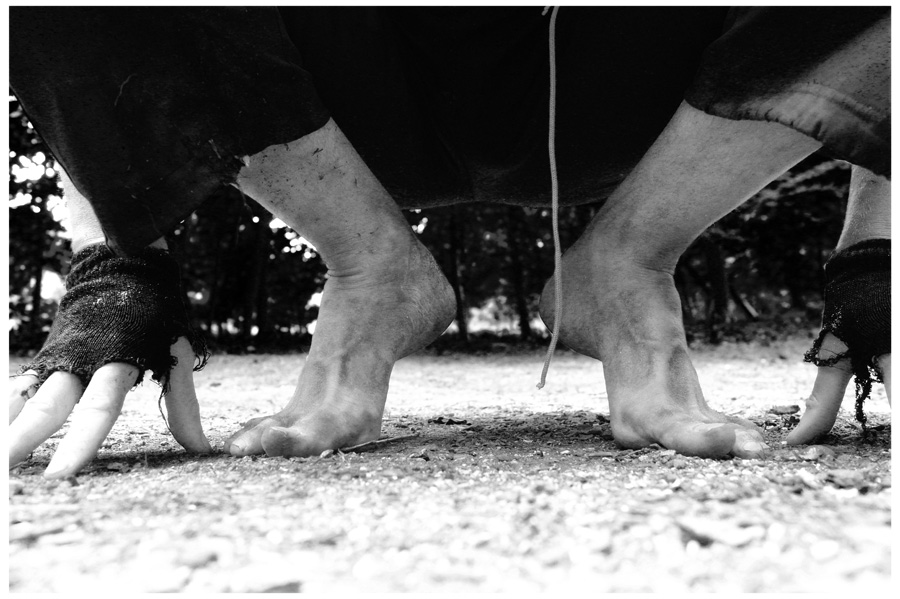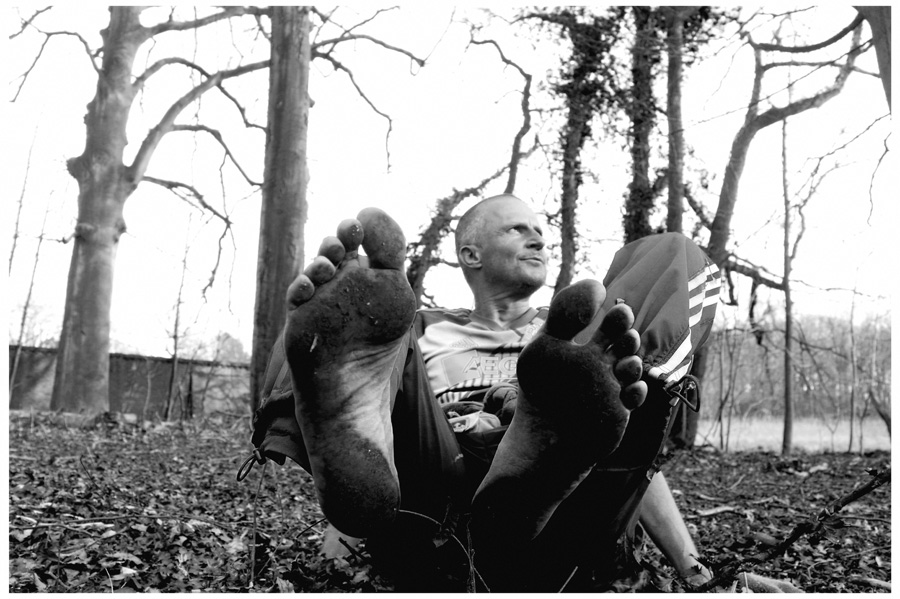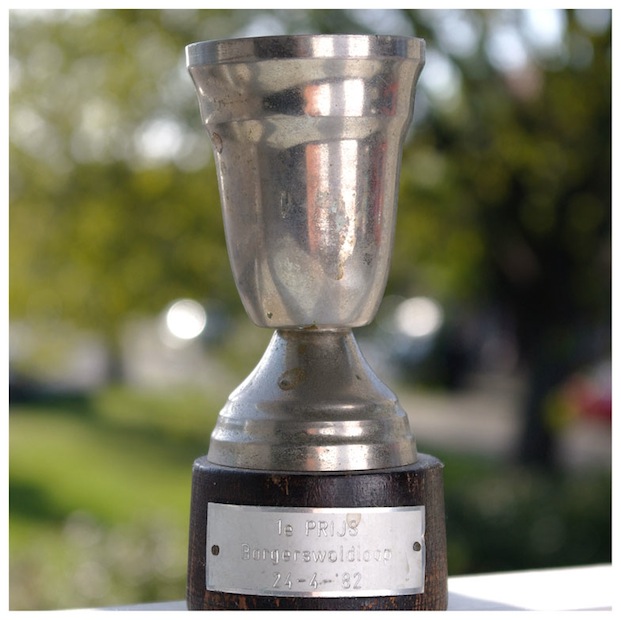SAR_8_along_the_way
- Details
- Hits: 9051

Above: FPS Sunday 9K SAR with Jesse today (2002). "Most [people], when experiencing fear or anxiety, tend to magnify the unknown. Training, including knowledge and experience gained in simulated situations, has the power to reduce the unknown and contribute to the control of fear." From: The Air Force Survival Training Manual.
"I expected it to be heavy."
Jesse van Broekhoven, member AV Haarlem
"Our practice cannot be perfect, but without being discouraged by this, we should continue it. This is the secret of practice."
Shunryu Suzuki in 'Zen Mind, Beginner's Mind' (page 73)
"Many of us have come to consider comfort as our greatest need. Comfort is not essential, and we often value it much too highly when the alternative is survival. You must value your life more than your comfort and be willing to tolerate heat, hunger, dirt, itching, pain and almost any discomfort. If you expose yourself to capture because you have a blister and think you can't walk another mile, you have not thought the situation trough. Reason is the key to this change of attitude; reason which identifies discomfort as a temporary problem in comparison with the much more serous problems you will be faced with if you are captured." '
From:'Survival Training Edition' , first published in 1962 by Air Training Command/Department of the air Force, reprinted in 1978 (chapter 1, page 8: 'The Will and Ability to Survive')
"The Tibetan tradition maintains that contemplation on suffering is much more effective when it is done on the basis of one's own personal experience, and when it is focussed on oneself, because, generally, we tend to be better able to relate to our own suffering than to that of others. This is why two of the principal elements of the Buddhist path, compassion and renunciation, are seen as two sides of the same coin. True renunciation arises when one has a genuine insight into the nature of suffering, focused upon oneself, and true compassion aries when that focus shifts to others; so the difference lies simply in the object of focus."
The Dalai Lama: 'The Dalai Lama's book of Transformation', first published in India in 2003, page 89-90.
"It is not the strongest of the species that survive, nor the most intelligent, but the one most responsive to change."
Charles Darwin as quoted by Don Mann in the introduction to 'The US Navy Seal Survival Handbook' (2012)
SAR_act_2.2.1
- Details
- Hits: 8976

Above: FP 30K SAR BLT [ training ]. SAR [ act 2.2.1 ] : key-light.
Learn about key-light: http://www.rogerdeakins.com/forum2/viewtopic.php?f=1&t=2546
SAR_act_2.2.2
- Details
- Hits: 8823

Above: FP SAR 28K BLT. SAR [ act 2.2.2 ] : protagonist.
"All I need to make a comedy, is a park, a policeman and a pretty girl."
Charles Chaplin, as quoted in documentary 'Charlie: the life and art of Charles Chaplin' by Richard Schickel (2003)
Learn about protagonist: http://www.independent.co.uk/arts-entertainment/films/features/martin-scorsese-in-conversation-guilt-trips-of-the-great-director-9000873.html
SAR_5
- Details
- Hits: 8874

Above: After todays SAR-training. Fresh, clear-view, sunny, deep-tide, gentle wind.
In KNMI (Royal Netherlands Meteorological Institute) language:
ZCZC
SA251655 EHAM AMSTERDAM/SCHIPHOL NLD -3 m.
METAR EHAM 251655Z 04013KT CAVOK 09/00 Q1011 NOSIG=
See more: knmi.nl
This game requires daily training and practice
- Details
- Hits: 8738

"Make it quick
. Run like hell"
Lemmy Kilmister on Motörhead's 2013 studio album 'Aftershock', track 2: 'Coup De Grace'
"[T]try to live as consciously, as conscientiously, and as completely as possible and learn who you are and who or what it is that ultimately decides."
C.G. Jung, Letters Vol. II, Pages 300-301
"Win or be damned" It went trough my head before I knew I had to win -- or be damned. I was the only non-atheletic-club-member; a soloist. My spirit rode my body like a jockey on the back of a horse. Everything transcended into opportunity. Pain is only an indication of where potential for growth lies. Go trough it and you grow. It's a human law. It opens doors to slip into dark corners that otherwise remain closed.
Because being the fastest that Saturday morning they gave me an award for it -- and that is the great thing about competitive sport: you win when you are the first to finish. Not, as in the arts or politics, because you have a way of charming the jury to award you (or annoying them and become an official looser). Winning in the arts, with all thou respect, is vulgar in a way. Like being appointed Buddhist Of The Year, or Employee of the Month. It's politics. Winning happens in the mind first. Screw awards -- excuse my French -- they merely tell the story of the people giving them away! Enjoy the game together. What Reinoud Eleveld (we spent two weeks with team and crew filming a Golf-pro training-camp in Portugal once) calls: The Spirit Of The Game.
Why are you showing the cup then in that slickly lit pack shot above; are you trying to impress?
Because from then, at that age (1982, 14 years at the time, the age of my oldest son now) what I remember is the chuckled look on the official's face while handing me the award at the price-ceremony afterwards. They didn't know who I was, where I was from. All others where decent paying members of a running club, decently dressed. I ran on normal shoes, my style must have been going against the status quo (which it has been ever since; generating quit a few laughs now and then -- which you get used to in a way -- focussing on what matters: having fun). It felt like having beaten something in how the system itself wants things to turn out. The winner is expected to come from within.
What they didn't know was that I had trained for 3 or 4 years prior to that.


